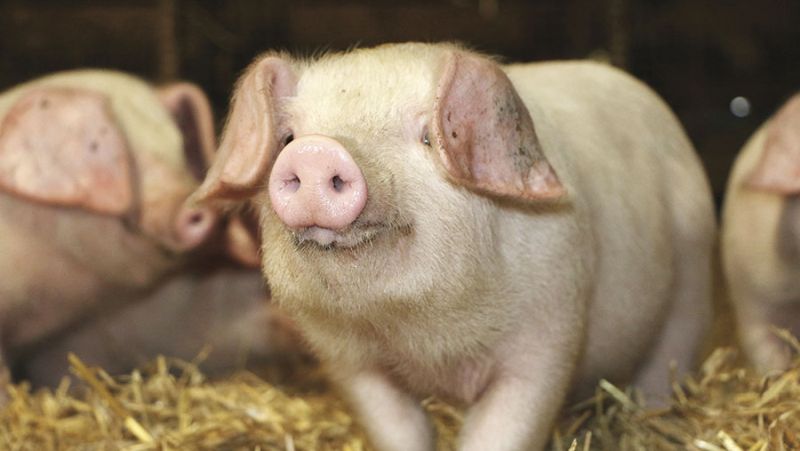
The future of one of Britain's rarest pig breeds will now be secured thanks to a donation of nearly £100,000 toward a new genome project.
The British Lop, which for many years has been one of the country's rarest, has been chosen to pilot the project.
Work will now begin following an impressive £94,500 donation from the Gerald Fallowes Discretionary Trust in support of Rare Breeds Survival Trust (RBST) pig conservation work.
The project will involve cutting-edge genomic work, new boar semen collections and advanced embryo work
The grant will be spread over the course of the five-year project. Genomic work will be carried out to establish a profile for the breed, which will make the British Lop the only native breed to have such modern scientific test for breed purity.
By understanding the genetic information, it will make it possible to test the purity of the animal or animal products being offered for sale.
RBST will collect genetic material from 15 boars, and one focus will be the ‘recycling’ of frozen semen pellets, known to be difficult to use, which enable genetically distinct boars to be bred early in the project and then collected from later.
It is hoped that collections can be made from these newly bred boars using more modern and efficient techniques.
George Eustice MP, former Defra farming minister, said he is 'delighted' that the British Lop has been chosen to pilot the project.
“My great grandfather was one of the founders of the National Long White Lop Eared Pig Society, now known simply as the British Lop.
“This ground-breaking project to enhance and improve genetics in one of our rarest native pig breeds is crucial work.”
Finally, research will be carried out into the collection, freezing and long-term storage of pig embryos, which will hopefully be followed by successful collections of embryos later in the project.
RBST Chairman Gail Sprake, said the aim is to secure the future of the British Lop forever: “It will enable us to fill our National Gene Bank for the breed, and also safeguard the breed against diminishing numbers and potential threats posed by disease outbreak.
“This will be the ultimate genetic insurance policy.”
To win the funding, RBST submitted a proposal for a three-strand project to be carried out in association with the British Lop Pig Society (BLPS), Deerpark Pedigree Pigs and other partners.
